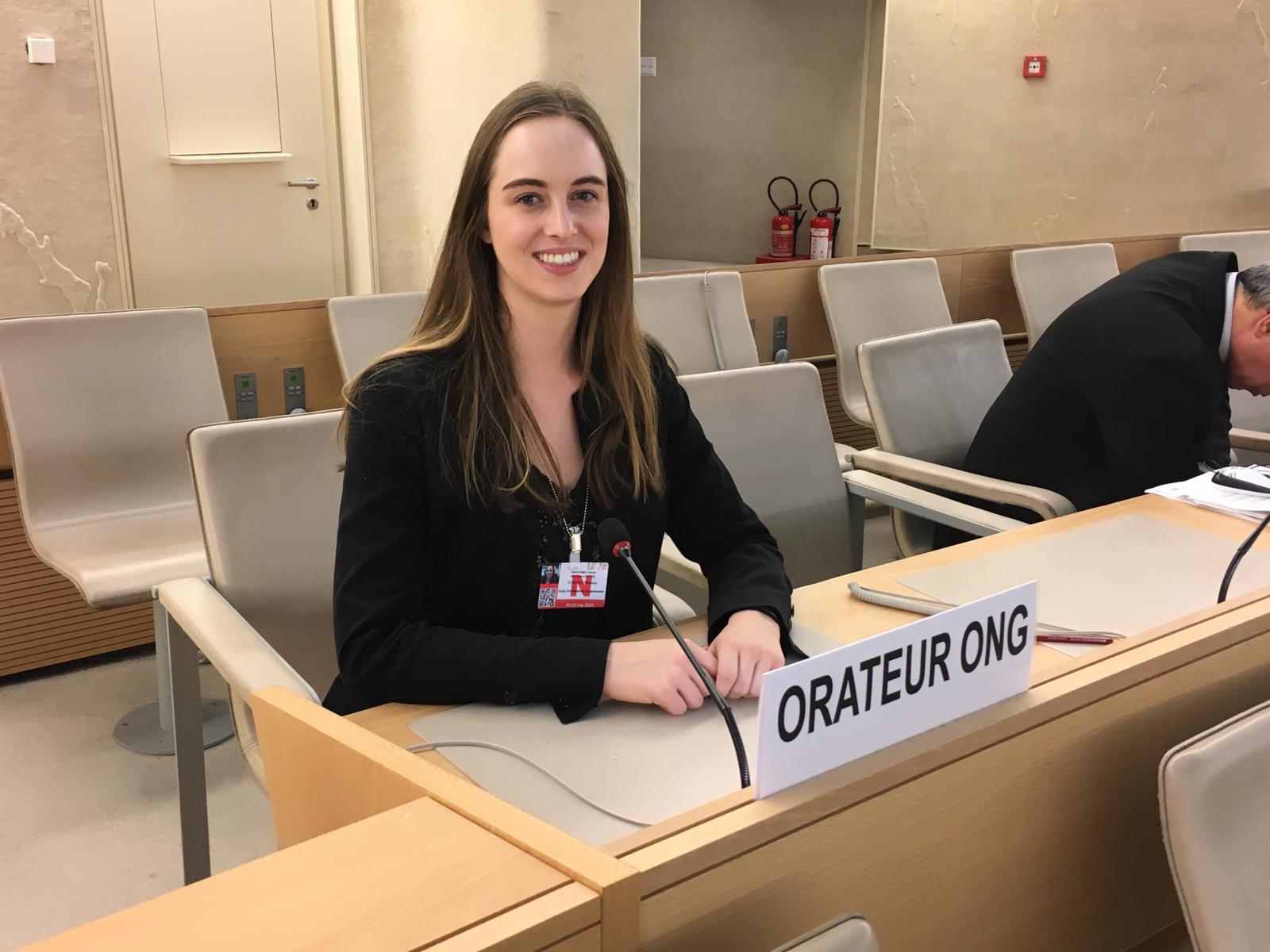On Thursday 13 September, at the 39th session of the United Nations Human Rights Council, ADHRB’s Advocacy Fellow delivered an oral intervention during the Agenda Item 3 Clustered Interactive Dialogue with the Special Rapporteurs on the right to development and on unilateral coercive measures. In the intervention, our Fellow raised concerns about Bahrain’s progress towards its Sustainable Development Goals and how this progress is being undermined by the government’s own practices of discrimination, political repression,and severe restrictions on human rights. Continue reading for the text of the intervention or click here for a PDF of the remarks.
Mr. President,
IDO and ADHRB wish to raise concern that Bahrain’s progress toward the Sustainable Development Goals is undermined by discrimination, political repression, and severe restrictions on human rights.
Bahrain’s government operates as a de facto absolute monarchy, excluding the vast majority of citizens from meaningfully participating in decisions shaping economic, cultural, and social development. In recent years, the authorities have heavily restricted fundamental freedoms and targeted virtually every human rights defender, opposition activist, and independent journalist for reprisal or intimidation. Arbitrary detention, enforced disappearance, torture, and excessive force are systematic and widespread, and the kingdom holds thousands of political prisoners behind bars. In addition, the Bahraini government continues to economically and politically marginalize its Shia Muslim majority, and to deny Shia communities equal access to housing, services, and employment.
Throughout, the government has fostered a culture of impunity for corruption and abuse, with official oversight bodies lacking the necessary independence to hold perpetrators accountable. This lack of transparency and accountability has been buttressed by a blanket refusal to allow UN Special Procedure mandate holders to visit the country since 2006, and officials also effectively cancelled a visit from the High Commissioner for Human Rights.
As a whole, Bahrain’s rapidly deteriorating human rights situation demonstrates that it is not committed to the SDG principle of “leaving no one behind,” and it ensures that any benefits of the kingdom’s development are distributed unevenly.
With the cabinet dominated by the ruling family and all major opposition societies dissolved, how can the Bahraini government meet the Sustainable Development Goals target of “ensuring responsive, inclusive, participatory and representative decision-making at all levels?”
Thank you.





